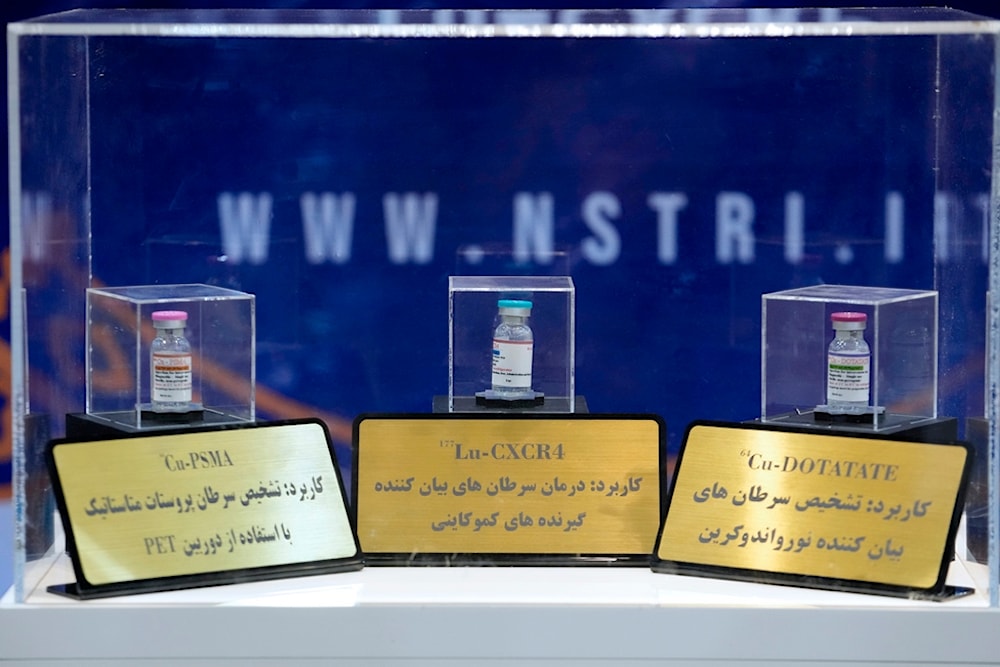Iran warns E3, US to stop pressuring its nuke program
Nasser Kanaani, the Foreign Ministry spokesperson, commented on Friday in response to a joint statement published on Thursday by the three European signatories to the 2015 nuclear accord - Joint Comprehensive Plan of Action (JCPOA) and the United States.
-

Iran's domestically-developed nuclear medicines are unveiled in an exhibition of the country's nuclear achievements, in Tehran, Iran, Tuesday, Dec. 12, 2023 (AP Photo/Vahid Salemi)
Iran says France, Germany, the United Kingdom, and the United States ought to stop exerting pointless pressure on Tehran and instead take the required political actions.
Nasser Kanaani, the Foreign Ministry spokesperson, commented on Friday in response to a joint statement published on Thursday by the three European signatories to the 2015 nuclear accord - Joint Comprehensive Plan of Action (JCPOA) and the United States.
The Western statement decried Iran's alleged growth in the manufacturing rate of highly enriched uranium with up to 60% purity.
The Iranian official, as usual, emphasized the peaceful character of Iran's nuclear program and expressed that Tehran thinks negotiation is the best way to address what he described as unfounded fears about Iran's peaceful nuclear activities.
Rather than issue pointless statements, Kanaani expressed the nations should "take the necessary political decisions," emphasizing that the E3 has moved away from negotiations. Therefore, he continued, they are in no position to comment about the nuclear program.
“Enrichment at 60% level in Iran's enrichment centers has always been and will continue to be in accordance with the peaceful needs of the country and fully under the supervision of the International Atomic Energy Agency (IAEA).”
Reaffirming Iran's commitment to continued cooperation with the IAEA, Kanaani remarked that the US and E3 should examine their performance in the sanctions removal discussions over the last two years and monitor the effect of their unconstructive actions.
In September, Kanaani said the commitment to cooperate with the IAEA remains unchanged, despite the decision to withdraw several IAEA experts from Iranian nuclear facilities.
The IAEA had announced that Tehran had opted to revoke the status of certain highly experienced inspectors engaged in verification tasks within the framework of the Treaty on the Non-Proliferation of Nuclear Weapons (NPT) safeguards agreement. The IAEA expressed its disapproval of this action, while Tehran argued that it was permissible under the terms of the agreement.
In June, Iran's permanent mission to the United Nations stressed there is no undeclared nuclear material in the country, adding that the IAEA relied on "fabricated information" provided by "Israel".
What is the NPT?
In 1968, the NPT was signed and officially enforced in 1970, initially designating only five nations—the Soviet Union (later succeeded by Russia), the US, the UK, France, and China—as possessing nuclear weapons, thereby discouraging the emergence of additional nuclear-armed states.
These five nations committed to refraining from transferring nuclear weapons or aiding in their development to other countries.
Other states that later became signatories to the treaty pledged not to acquire or manufacture nuclear weapons.

 3 Min Read
3 Min Read








